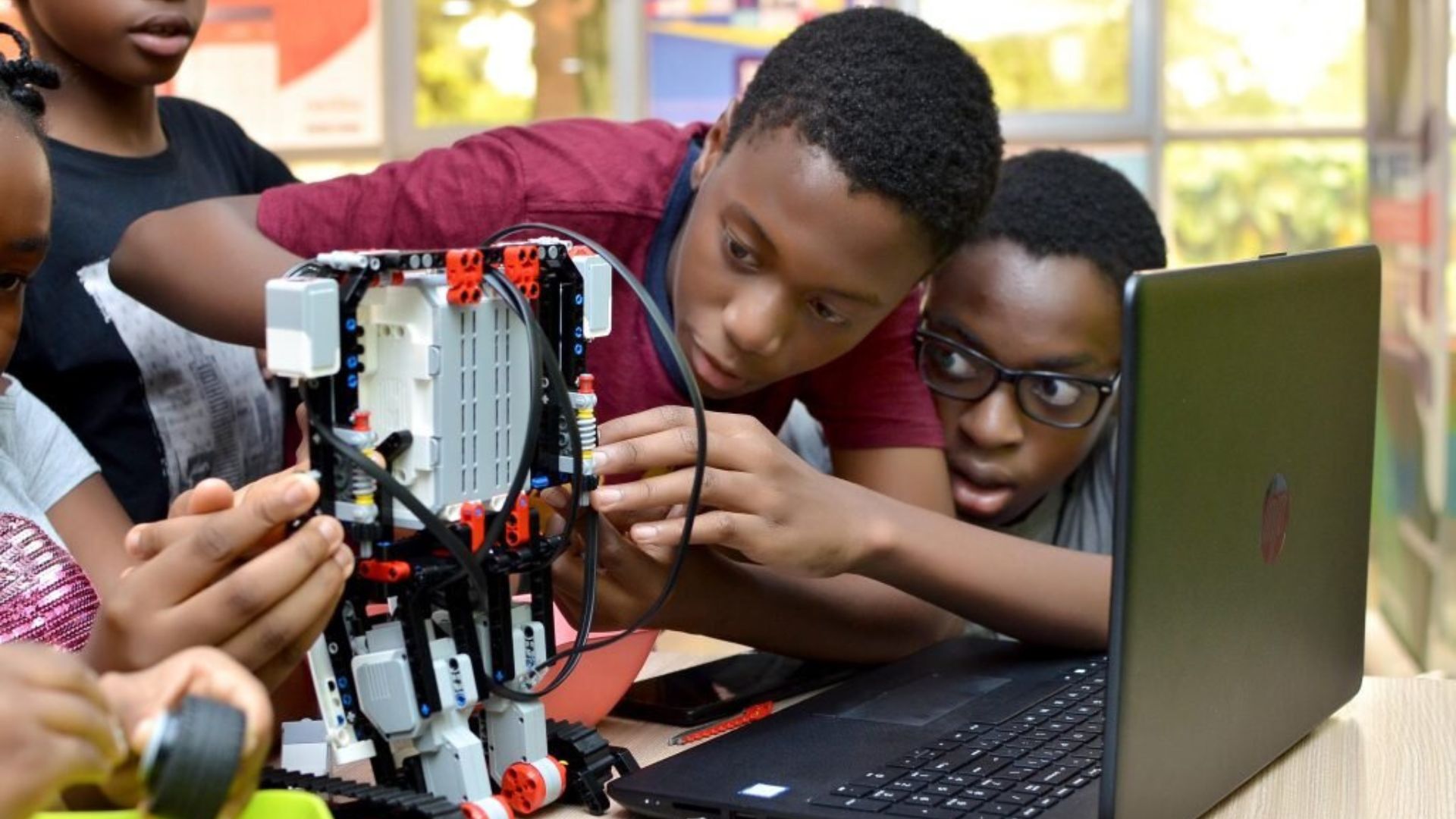|
Getting your Trinity Audio player ready...
|
Technology stands as a defining force in shaping the experiences and trajectories of the youth. This exploration delves into the multifaceted role of technology in youth development, examining its influence on education, communication, mental health, and the potential challenges that arise along this transformative journey.

Digital Learning Platforms
The integration of technology in youth development specifically in education has revolutionized traditional learning methods. Virtual classrooms, e-books, and interactive online resources have become essential tools, offering students unprecedented access to knowledge. Gamification and immersive technologies, such as virtual reality (VR) and augmented reality (AR), enrich the learning experience, making education more engaging and effective.
Educational Apps and Games
Engaging educational apps and games provides a dynamic and interactive learning experience. From language acquisition to STEM concepts, technology fosters a creative and immersive educational environment. Personalized learning pathways, adaptive assessments, and real-time feedback contribute to a tailored educational journey for each student.
Global Connectivity
Technology transcends geographical barriers, enabling students to connect with peers globally. Collaborative projects, online forums, and video conferencing facilitate cross-cultural interactions, broadening perspectives and fostering global awareness. Digital literacy programs empower youth to navigate the online world responsibly and critically evaluate information.
Social Media Impact
Social media platforms serve as virtual gathering spaces for the youth. They enable communication, self-expression, and the cultivation of online identities. However, the impact on mental health and well-being warrants thoughtful consideration. Promoting digital citizenship involves educating youth about responsible online behaviour, cyberbullying prevention, and the importance of maintaining a healthy balance between the virtual and real worlds.
Instant Messaging and Connectivity
The ease of instant communication through messaging apps fosters quick and efficient connections. This constant connectivity shapes the way the youth build relationships, share experiences, and navigate the complexities of interpersonal dynamics. Encouraging open communication and providing resources for managing digital relationships contribute to fostering healthy connections.
Virtual Communities
Technology facilitates the creation of virtual communities centred around shared interests. Whether gaming, fandoms, or niche hobbies, these online spaces offer a sense of belonging and camaraderie. Navigating these communities safely involves promoting positive online interactions, addressing potential risks, and fostering inclusivity.
Navigating Mental Health Challenges
Social Media Pressures
While social media provides a platform for self-expression, it also introduces challenges related to self-esteem and body image. Understanding the impact of curated online personas is crucial for fostering positive mental health. Educational programs and awareness campaigns can empower youth to engage with social media mindfully and develop a healthy self-image.
Digital Detox Practices
The ubiquity of technology raises concerns about screen time and its potential impact on mental well-being. Incorporating digital detox practices, including offline activities and mindfulness, is essential for maintaining a healthy balance. Schools and parents can collaborate to create environments that encourage physical activity, face-to-face interactions, and moments of unplugged reflection.
Cyberbullying Awareness
The digital landscape comes with the risk of cyberbullying. Raising awareness and promoting online etiquette are vital steps in creating a safer online environment for the youth. Comprehensive anti-bullying programs, both in schools and online platforms, contribute to building a culture of respect and kindness.
Harnessing Technology for Empowerment
Entrepreneurial Endeavors
Technology opens doors for entrepreneurial pursuits. From app development to e-commerce, the youth can leverage digital platforms to explore and establish their ventures. Entrepreneurship education and mentorship programs empower youth to channel their creativity and innovation into impactful projects.
Digital Literacy Challenges
Despite the vast opportunities, digital literacy gaps persist. Ensuring that all youth have access to the necessary skills and resources is essential for equitable participation in the digital age. Community-driven initiatives, partnerships with tech companies, and school-based programs contribute to bridging these gaps and fostering digital inclusion.
Tech Addiction Awareness
As technology becomes integral to daily life, awareness of potential addiction issues is crucial. Striking a balance between technology use and offline activities is vital for overall well-being. Educational campaigns, parental guidance, and mental health resources help youth develop healthy technology habits and resilience in the face of digital challenges.
Conclusion: Empowering Responsible Digital Citizens
As technology continues to evolve, the role it plays in youth development remains complex and dynamic. Nurturing responsible digital citizens requires a collaborative effort from educators, parents, and society at large. By promoting digital literacy, encouraging mindful technology use, and fostering a supportive environment, we can empower the youth to navigate the digital landscape with confidence, resilience, and a keen sense of purpose. The journey towards responsible digital citizenship is a shared responsibility, and through collective efforts, we can ensure that technology becomes a tool for empowerment and positive transformation in the lives of the youth.
You might also be interested in the following:




